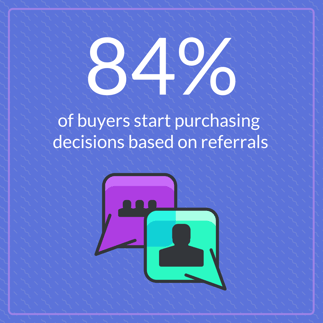From 2000-2015, the evolution of digital took marketing from brand awareness to legitimate lead generation. The rise of marketing platforms like Hubspot and Marketo put the power of automation and email at the forefront of business-to-consumer sales.
The concept was the same it had always been with in-home advertising, but now it became more personalized. Instead of a Super Bowl television ad blanketing the country, companies could speak to you one-on-one in your very own email inbox.
As Jon Miller, co-founder of Marketo summed up:
In this era, marketing began to own the top of the funnel, using marketing automation tools to send emails, capture and nurture leads, and pass them to Sales who, in turn, owned the deal close and post-sale growth. Marketing was the “owner” of email, controlling the keys to customer communication.
But that's where marketing's journey is done. What happens to the lead that indicates they're ready to buy after they're passed to the sales team? How fast is your team interacting with that lead while they're in the prime stage of making a buying decision?
The answers to those questions are why conversation platforms are the logical next step for any company looking to build a successful B2C or B2B sales strategy.
Conversation platform vs. marketing platform
Conversation platforms are the logical next step in building a stronger relationship between the consumer and the business. Right now, regardless of experience or ability, sales professionals are consistently plagued by four problems related to their technology.
- Siloed communication channels
- CRMs that don't integrate with daily tools
- Time and bandwidth to effectively handle incoming leads
- Poor customer interaction management
They have no need or reason for using a marketing program, which is typically too robust for their needs and don't quite address the issue of two-way conversations.
Marketing platforms create the lead, conversation platforms convert the lead
In 2011, Harvard Business Review analyzed 1.25 million sales leads for 29 B2C and B2B companies, and they found that speed-to-lead is the biggest determining factor in closing opportunities.
Firms that tried to contact potential customers within an hour of receiving a query were nearly seven times as likely to qualify the lead (which we defined as having a meaningful conversation with a key decision maker) as those that tried to contact the customer even an hour later—and more than 60 times as likely as companies that waited 24 hours or longer.
As important as that stat is, home improvement companies still struggle with getting sales teams to respond once a lead comes in through corporate, their website, HomeAdvisor, Facebook, or generally any other lead generation platform.
Conversation platforms funnel all customer communication into a single platform for quick follow-up.
Extend conversation beyond the sale with WOM
The strongest type of marketing is the kind that doesn't cost a dime. WOM, or word-of-mouth, is your customer sharing a positive experience with friends and family.

Frame a marketing platform like this - your company shouting from the top of a mountain through a megaphone to hundreds of people at once. There's no doubt they'll hear you and see you, and if what you say interests them, they'll raise their hand.
The problem is that you can't form a meaningful relationship with that customer until you come down from the mountain and have a discussion with them. A conversation platform is just that, and it gives you an opportunity to talk to them how they want to be talked to - whether that's by text, email and/or phone call.
Conversation builds relationships, relationships build referrals.
Easy to use, easy to implement
Time is already of the essence for sales teams - between appointments, meetings, building relationships and actually selling your product. Adding another tool into their already busy day just isn't going to work.
With marketing platforms like Hubspot and Salesforce Marketing Cloud, most companies hire a specialist to manage just the day-to-day needs of the platform - in fact, with CRMs like Salesforce, most companies also hire another person just to manage the CRM after the implementation which usually takes another consultant or specialist to manage.
Here's a screenshot of Salesforce's built-in B2C marketing cloud automation solution.
Great for marketing teams, yet imagine telling your sales team that they're adding this into their daily process.
Conversation platforms are built for ease of use. Additionally, they are built to reduce the number of different applications your sales team hops back and forth between. No more chasing prospects between Outlook to your cell phone to text to your desk phone to call.
Conversation platforms manage all of these in one clean dashboard.
Conversation platforms are the future of B2C sales, and they're changing the way companies go about engaging customers.